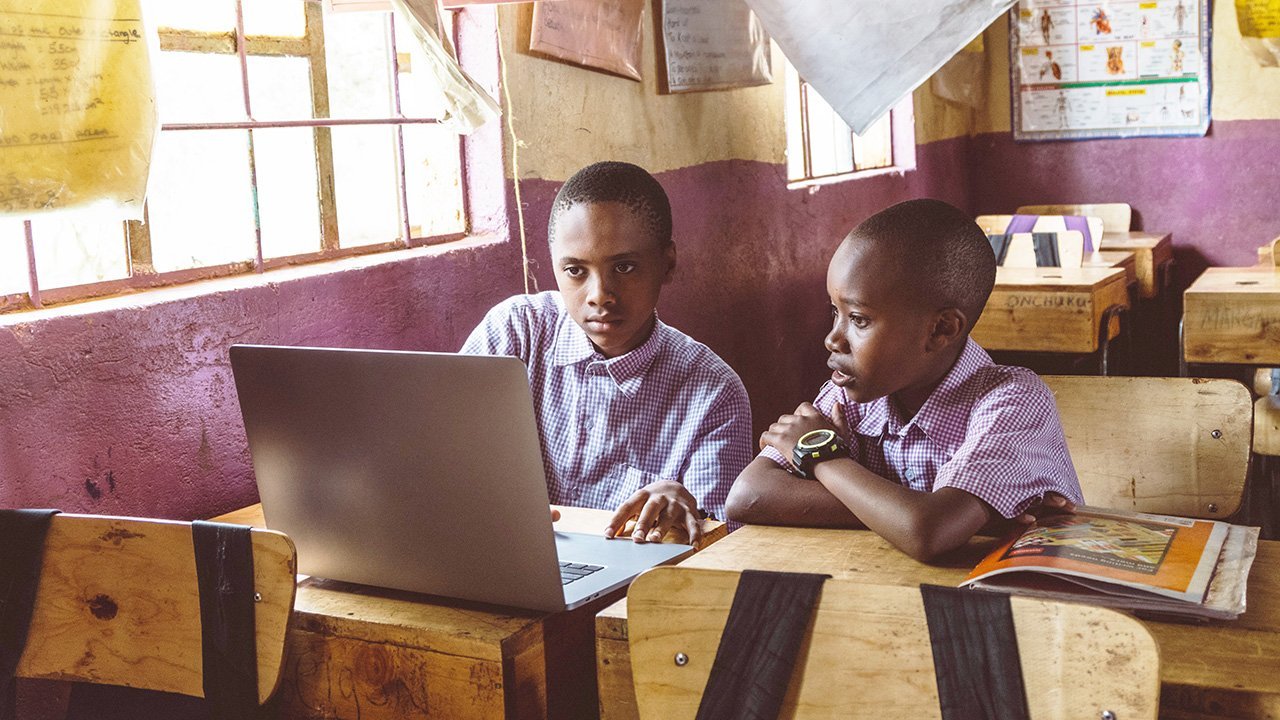ADEA set to launch the IsDB and AfDB commissioned study report on the use of ICT in education during crisis in 34 African countries

May 22th, 2023: The Association for the Development of Education in Africa (ADEA) will launch the synthesis report of the study on "the use of information and communication technology (ICT) in education and remote learning during crisis and the required investment for digital transformation in African countries." The launch event will take place on Wednesday 25th May 2023, on the margins of the eLearning Africa Conference at the Abdou Diouf Convention Centre, Dakar, Senegal. The Islamic Development Bank (IsDB) and the African Development Bank (AfDB) commissioned this study, also supported by the Mastercard Foundation, in 34 African countries.1
The Ministerial Declaration at the end of the ADEA 2022 Triennale acknowledged the disastrous impact of COVID-19 on access, relevance and quality of education and learning in Africa. As a result, it became imperative to evolve a proactive and resilient education system to ensure learning continuity during crisis. Ministers at the Triennale equally recognized the role of innovative technologies in this regard and committed to building a resilient education system leveraging technology solutions to re-skill teachers, invest in technology infrastructure and commit to the digital transformation of Africa’s learning system.
To empirically understand the existing gaps and ensure an objective approach to implementing these commitments, ADEA undertook this study, which assessed the status and capacities of the participating countries in using ICT in education and remote learning. The study covered basic and secondary education, technical and vocational education and training (TVT), and higher education. It reviewed the state of preparation of the study countries in support of ICT use in education and how technology solutions were deployed to mitigate learning losses during COVID-19.
The methodological approach involved the use of qualitative and quantitative data to achieve a nuanced understanding of ICT integration into the education sector. This was done at country-level and in two phases. The first phase entailed a desk review and analysis of the relevant literature from government and institutional sources, national and international studies of changes before and after the onset of the pandemic. In the second phase, ADEA administered questionnaires to a predefined sample. Outputs from this process includes country-level reports and the synthesis report.
The findings show that the 34 countries are at varying degrees in using ICT in education in terms of the political, strategic, pedagogical, organizational, and expenditure levels. It also showed that infrastructure such as electricity was the key factor preventing adequate ICT uptake in education. The proposed strategies for integrating ICT in the education system across the continent include building appropriate supporting infrastructure, prioritizing sound pedagogy and training of teachers to effectively use ICT to support instruction.
The report identifies some key priority areas for potential investment in the study countries. They include electrification, especially targeting rural households and schools; capacity-building of pre-service and in-service teachers in ICT in education and a revision of teacher training curricula; development of mass digital literacy programmes for citizens; development of internet infrastructure and increasing penetration of televisionand radio; and addressing issues of absolute hunger and poverty in alignment with the second UN Sustainable Development Goal (SDG2) and the Continental Education Strategy for Africa 2016-2025 (CESA 16-25).
According to Albert Nsengiyumva, the Executive Secretary of ADEA,
"Countries made commitments at the ADEA Triennale to leverage ICT to deliver learning and quality education to their people. This study provides them with the evidence base necessary to implement those commitments. This is an example of the value ADEA provides, and I am grateful for partners like IsDB, AfDB and the Mastercard Foundation for ensuring we realize this study and provide such assistance to our member countries."
The launch event will include a Ministerial Round Table on "how to leverage technology to address the skills gap in Africa". It will provide a chance for ADEA and its partners to engage with countries and find a pathway towards ensuring the uptake of policy recommendations from this study with support from development partners, especially development finance institutions.
About ADEA and the Study Partners
Islamic Development Bank: The Islamic Development Bank (IsDB) is a multilateral development bank (MDB), working to improve the lives of those it serves by promoting social and economic development in Member countries and Muslim communities worldwide, by delivering impact at scale. Visit the IsDB website: https://www.isdb.org/
African Development Bank Group: The African Development Bank (AfDB) Group mobilises and allocates resources for investment in RMCs, while providing policy advice and technical assistance to support development efforts through infrastructure development, regional economic integration, skills and technology. Visit the AfDB website: https://www.afdb.org/
Mastercard Foundation: The Mastercard Foundation is developing programs primarily focused on reducing gender and economic inequality, expanding access to quality education, increasing the opportunities for decent work, and supporting overall economic growth. Visit the Mastercard Foundation webpage: https://mastercardfdn.org/
Association for the Development of Education in Africa: The Association for the Development of Education in Africa (ADEA) is a critical voice and a forum for policy dialogue on education in Africa. ADEA seeks to empower African countries to reform their education systems to sustainably respond to key development needs. Visit ADEA’s website: https://www.adeanet.org/
End of Release
For more information, please contact the following persons:
Chinedu Anarado – Communications Specialist, ADEA: c.anarado@adeanet.org
- Angola, Benin, Botswana, Burkina Faso, Cameroon, Chad, Comoros, Côte d'Ivoire, Ethiopia, Djibouti, Gambia, Ghana, Guinea, Guinea Bissau, Kenya, Madagascar, Mali, Mauritius, Mauritania, Mozambique, Namibia, Niger, Nigeria, Rwanda, Senegal, Sierra Leone, Somalia, South Africa, South Sudan, Tanzania, Tunisia, Uganda, Zambia, and Zimbabwe.